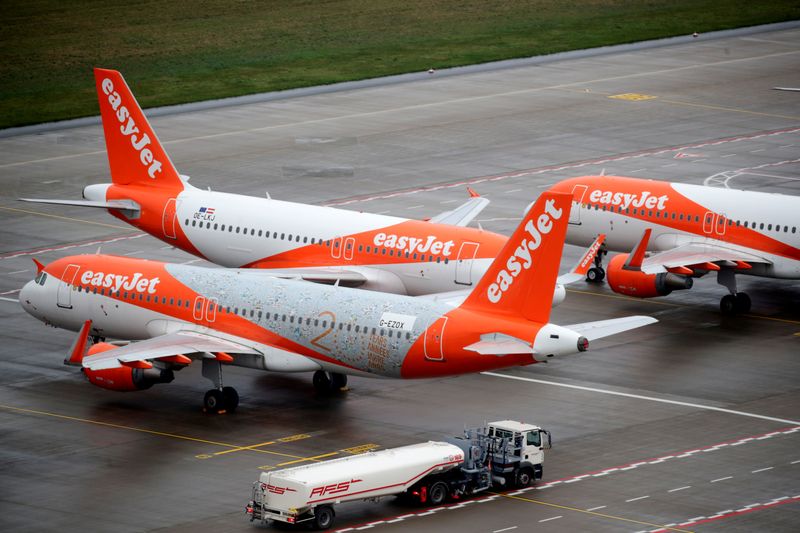This post was originally published on this site

Investing.com — EasyJet PLC (LON:EZJ) stock fell over 3% on Monday, before paring losses later, after the airline was forced to cut its schedule for the key summer season due to ongoing labor shortages at both airlines and airports.
By 3:40 AM ET (0740 GMT), EasyJet stock was down 2.4%.
Europe’s second-biggest discount flyer said it now expects to fly around 87% of its 2019 capacity in the current quarter, down from an earlier forecast of 90%. For the key summer quarter, the final three months of its fiscal year, it expects to operate at 90% of 2019 capacity, down from 97% earlier.
EasyJet’s action illustrates how the explosive rebound in travel demand across Europe this year has quickly run into capacity constraints. The action was triggered by decisions by Amsterdam’s Schiphol and London’s Gatwick Airports to impose caps on the number of flights they will operate this summer, due to not having enough air traffic and ground handling personnel.
“Given the unprecedented ramp up, the aviation industry across Europe is experiencing operational issues with root causes similar to the post covid supply chain issues being seen in many other parts of the economy,” EasyJet said in a statement. It noted that airports’ problems were “resulting in increased aircraft turnaround times and delayed departures which have a knock-on effect resulting in flight cancellations.”
EasyJet is being forced to consolidate some of its flights as a result but expressed confidence that it will be able to rebook all passengers affected.
The company also warned of cost overruns in the months to come, having had to pay up for extra aircraft and crew to handle the surge in demand.
“There will be a cost impact from disruption, coupled with the enhanced resilience easyJet is putting in place this summer, from additional wet leased aircraft, crew costs and airport charges,” it said. “We will therefore exceed the previously provided operating CASK (cost per available seat kilometer) ex fuel guidance.”
It added that it expects such impacts to be a one-off, “as we would expect all parties to build greater resilience in time for 2023 peak periods.”
Airline stocks have been battered this year as such problems, coupled with soaring fuel costs, have threatened to erode the benefits of the rebound in tourism after the pandemic. A shortage of workers from EU countries has also made things worse for airlines with a big U.K. presence, such as EasyJet and Ryanair (NASDAQ:RYAAY), while the rising trend in interest rates is making it more expensive to service debts taken on during the pandemic.
EasyJet stock fell to a 10-year low last week, even dipping below the low point it hit during the initial pandemic panic in March 2020.

